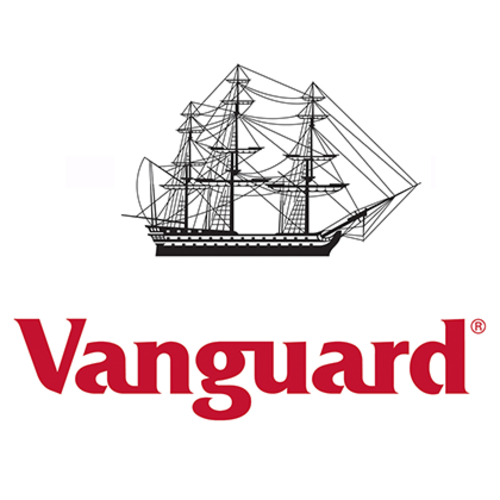Contents
The shares are usually held by a domestic custodian on behalf of the depositories in turn issue the depository receipts, which entitle the holder of the receipts to get the underlying shares on demand. Global depositary receipts are typically part of a program that a company builds to issue its shares in foreign markets of more than one country. For example, a Chinese company could create a GDR program that issues its shares through a depositary bank intermediary into the London market and the United States market. If a company wants to offer its equity shares in a foreign market it must work with a depositary bank. This means the underlying company seeking to raise money through the specially structured share issuance must partner with a depositary bank to do so. As an intermediary, the depositary bank manages the share issuance, administration aspects of the share listing, and other details involved with the shares being offered.
- Traders dealing in GDRs often compare the, for example, U.S. dollar price of the GDR with the U.S. dollar equivalent price of the shares trading on the international company’s domestic exchange.
- In turn, these banks package and issue shares to their respective stock exchanges.
- Investopedia does not include all offers available in the marketplace.
- But it has stricter measures when you compare to the latter.
- Global Depositary Receipts are a type of depositary receipt.It’s a form of bank certificate that works like stock in a foreign company.
Trading in GDR has access to companies that are named under the LSE list and Euronext list. The offers that appear in this table are from partnerships from which Investopedia receives compensation. Investopedia does not include all offers available in the marketplace.
Small Cap Trading Stock Declared 90% Dividend, Hits 52-Week Low, Will Trade Ex-Dividend This Week
Using GDRs, companies can raise capital from investors in countries around the world. For those investors, the GDRs will be denominated in their home country currencies. Since GDRs are negotiable certificates, they trade in multiple markets and can provide arbitrage opportunities to investors. The receipts are issued by the depository bank, and in more than one country representing a fixed number of shares in a foreign company.

To clear all these boundations, different methods of trading are used. The GDRs that are regulated by Rule 144A of the Securities Exchange Commission of the US is termed as Rule 144A GDRs. And through such GDRs, a non-US company has the permission to trade and raise funds in the US financial markets. Hence, GDR comes across as a cheaper alternative as compared to Type III ADRs to raise funds from US markets. The creation of un-sponsored ADRs also happens by US banks without involving any non-US company. The unsponsored ADRs are further classified into Type I, Type II, and Type III ADRs.
What is GDR?
The GDRs are denominated either in US Dollars or in Euros but mostly denominated in US Dollars. A global depositary receipt is a negotiable financial difference between adr and gdr instrument issued by a depositary bank. It represents shares in a foreign company and trades on the local stock exchanges in investors’ countries.
When at least 51% shares are in the hands of government, it is called as __________. Ask Any Difference is made to provide differences and comparisons of terms, products and services. And from time to time they also need funds https://1investing.in/ to meet the requirement. Since the inception of civilization, humans are involved in selling and purchasing goods. And they have been practicing this not only at the regional level but also at the global level as well.
The underlying company does not necessarily have direct access to manage their depositary receipt shares in the same way that they manage their domestic shares. Many publicly listed companies in India, trades their shares through Bombay Stock Exchange or National Stock Exchange. Many companies want to trade their shares in overseas stock exchange. In such a situation companies get itself listed through ADR or GDR. For this purpose, the company deposits its shares to the Overseas Depository Bank and the bank issues receipts in exchange for shares. Now, every single receipt consists of a certain number of shares.

Through ADR, US investors can also invest in non-US companies as well. With the transfer of ADR, all the underlying shares of trading also get transferred. ADR is further divided into three different categories, that are facilitation, mediation, and lastly arbitration. As suggested by the name, ADR is issued in the country of America and it only deals with the US stock market. A global registered share is a security that can be traded across multiple countries and in multiple currencies. Depository Receipts help the Non-Resident Indian’s or foreign investors to invest in Indian companies by using their regular equity trading account.
Investors and companies may wish to invest in publicly traded equity stocks that are not domiciled directly in their own country. These securities can add diversification to a portfolio and also provide a broader universe for identifying the highest potential return through stocks. An unsponsored ADR is an American depositary receipt issued without the involvement or consent of the foreign issuer whose stock it underlies. Traders dealing in GDRs often compare the, for example, U.S. dollar price of the GDR with the U.S. dollar equivalent price of the shares trading on the international company’s domestic exchange. They’ll typically buy the less expensive security and sell the other. Eventually, this arbitrage trading activity causes the underlying shares and the GDRs to reach parity.
ADR deals with US stock market while GDR deals with international stock market where US stock market is excluded. The ADR investors hold privileges like those granted to shareholders of ordinary shares, such as voting rights and cash dividends. The ADR transactions of Indian Corporates will take place in US Dollars and settled like any other US transaction on the NYSE or NASDAQ. The DRs provide an opportunity to expatriates to invest in companies of their home countries. GDRs are generally referred to as European Depositary Receipts, or EDRs, when European investors wish to trade locally the shares of companies located outside of Europe. GDRs represent an easy way for U.S. and international investors to own foreign stocks.
Main Differences Between ADR and GDR
Since time immemorial, people have been selling and buying goods. And with the invention of the internet, human beings can buy and sell at a regional level and a global scale. During the Harappan civilization, traders of Mohenjodaro used to buy and sell with Mesopotamian civilization. Trading has been a crucial and very popular method when it comes to financing for centuries. However, in today’s time, trading has gained so much popularity that it is not just limited to a small level, but also at a large scale level.
ADR and GDR are commonly used by the Indian companies to raise funds from the foreign capital market. The principal difference between ADR and GDR is in the market; they are issued and in the exchange, they are listed. While ADR is traded on US stock exchanges, GDR is traded on European stock exchanges. While a Global Depository Receipt is a depository receipt which is issued by the international depository bank, representing the foreign company’s stock. GDR is a negotiable instrument issued by an international depository bank that represents the shares of a foreign corporation that is available for purchase on the international market. GDRs can be listed on multiple global stock exchanges, They also provide investors with the benefits and rights of the underlying shares, which could include voting rights and dividends.
What is ADR?
These DRs are then issued, listed and traded in the local stock exchanges of the other country. The Depositary receipts that are listed and traded in the United States such as Nasdaq and NYSE are known as American depositary receipts . Similarly, depository receipts listed and traded in the European exchange such as London Stock Exchange are known as Global Depository Receipts or European Depository Receipts /International Depository Receipts.
As stated earlier, they are grouped depending on the extent of access over the US trading market. On the other hand, GDR is a Global Depository Receipt given to individuals who want to invest in a global market such as the London Stock Exchange; then, he will be given this receipt. ADR will permit foreigners to trade in the United States, while GDR permits foreigners to trade worldwide. With the industrial revolution, traders started trading with more intensity. And it cultivated the need to raise funds for various projects. Facilitation is the least formal method of ADR as compared to the rest of the two types.
Depository Receipt is a type of negotiable financial security that is traded on a local stock exchange but represents a security that is issued by a foreign publicly listed company. Aglobal depositary receiptis one type of depositary receipt. Like its name, it can be offered in several foreign countries globally. Depositary receipts only offered in a single foreign market will typically be titled by that market’s name, such as American depositary receipts, discussed below, and EDRs, LDRs, or IDRs. ADR and GDR are two depository receipt, that is traded in local stock exchange but represent a security issued by a foreign public listed company.